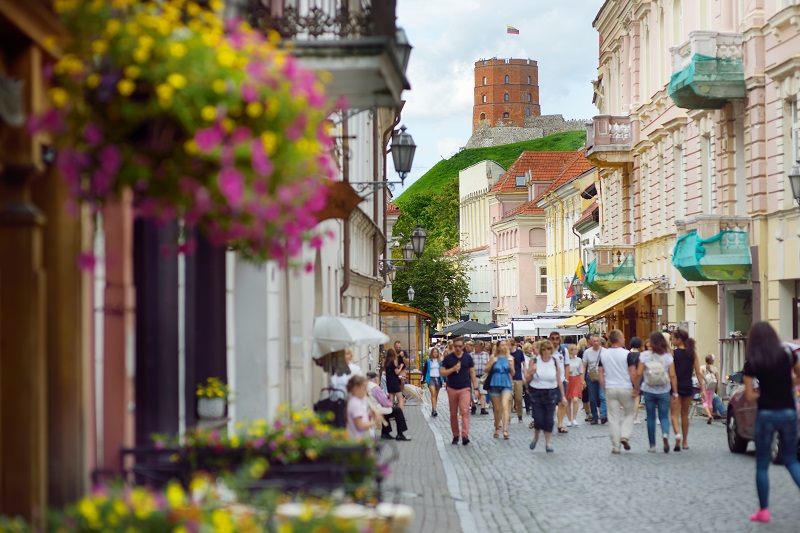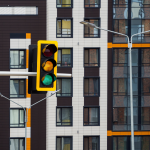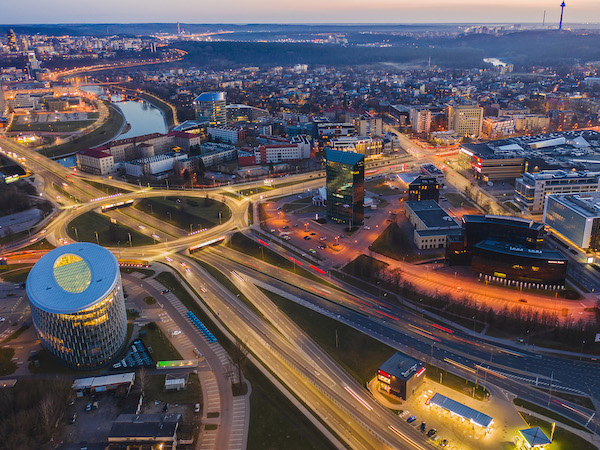Growing urban population forcing up apartment prices in the cities
 The Ober-Haus Lithuanian apartment price index (OHBI), which records changes in apartment prices in the five major Lithuanian cities (Vilnius, Kaunas, Klaipėda, Šiauliai and Panevėžys), increased by 0.7% in August 2019. The annual apartment price growth in the major cities of Lithuania was 6.4% (the annual apartment price growth in July 2019 was 6.2%).
The Ober-Haus Lithuanian apartment price index (OHBI), which records changes in apartment prices in the five major Lithuanian cities (Vilnius, Kaunas, Klaipėda, Šiauliai and Panevėžys), increased by 0.7% in August 2019. The annual apartment price growth in the major cities of Lithuania was 6.4% (the annual apartment price growth in July 2019 was 6.2%).
In August 2019 apartment prices in the capital grew 0.7% with the average price per square meter reaching EUR 1,577 (+11 EUR/sqm). Since the last lowest price level recorded in May 2010 prices have increased by 36.6% (+423 EUR/sqm). Apartment prices in Kaunas, Klaipėda, Šiauliai and Panevėžys in August grew by 0.5%, 1.2%, 1.0% and 0.1% respectively with the average price per square meter reaching EUR 1,123 (+6 EUR/sqm), EUR 1,116 (+14 Eur/sqm), 719 (+7 EUR/sqm) and EUR 700.
In the past 12 months, the prices of apartments grew in all major cities: 5.9% in Vilnius, 6.4% in Kaunas, 5.1% in Klaipėda, 12.1% in Šiauliai and 13.2% in Panevėžys.
“The housing market activity across the whole country and in major cities continues to increase – more and more housing properties are purchased each year. The growing demand continues to drive housing prices up in the cities. However, not only the financial capacities of buyers, but also the growing urban population increase demand in specific cities. According to Statistics Lithuania, in H1 2019 Vilnius, Kaunas, Klaipėda and Šiauliai city municipalities saw the growth in the number of inhabitants. A consistent increase in the number of inhabitants has been recorded in the country’s capital since 2012, meanwhile in other major cities the rise in the population has been recorded for the first time after a longer break. This is very important for the real estate market as a whole, because the growing urban population creates additional demand for both rented and purchased homes.
Based on the preliminary estimates provided by Statistics Lithuania, in H1 2019, the resident population grew by as many as 5,309 people in the city of Vilnius, 255 people in Kaunas, 614 people in Klaipėda and 608 people in Šiauliai. In Panevėžys, the population continued to decline and in mid-2019 there were 659 fewer inhabitants than at the start of the year. The city of Vilnius can be distinguished from the major cities for its highest recorded population increase both in relative terms over half year and in nominal terms over the last decade.
Despite the prevailing negative demographic trends both in the whole country and in specific cities, housing demand and sales prices in smaller cities of the country (e.g. Šiauliai and Panevėžys) have consistently increased over the past decade. The main reasons for it are small volumes of construction of multi-apartment buildings in such cities and much better statistical indicator of affordability than in Vilnius, Kaunas or Klaipėda. For example, due to much lower housing prices in Šiauliai and Panevėžys, it is easier to purchase it both for those who live and work there and those who emigrated abroad and who invest part of their earnings in their native cities. The returning urban population could revive the stagnating housing and commercial real estate development in these cities,” Raimondas Reginis, Research Manager for the Baltics at Ober-Haus, said.
Full review: Lithuanian Apartment Price Index, August 2019 (PDF)
Latest news
 All news
All news

“e-market city” completes its second phase – the development of a modern “stock office” type shopping town continues
"e-market city", an online and wholesale shopping town located in a business-friendly location at the intersection of Eišiškių pl. and Geologų Street, is rapidly approaching the end of its second phase. The final construction works are currently underway and the first tenants of the new phase are preparing to move in as early as June-July. "The predominant floor areas of e-market city - ranging from 370 to 960 m² - are easily combinable and adaptable to a wide range of commercial activities. Existing and potential tenants appreciate the easy accessibility, high quality of construction and fitting-out, functional layout and solid neighbourhood, where well-known companies such as Assa Abloy, Dextera, Skuba, Skuba, Maidina, Šildymas plius, YE International, etc. are already located. The first phase is already 100% leased, while the second phase is still available - we invite you to get in touch", says Remigijus Valickas, Commercial Real Estate Projects Manager at Ober-Haus. The project is being developed in three phases on an area of 3.9 ha. The total area of the buildings will exceed 20,000 m² and the total investment in the project will amount to more than EUR 25 million. For more information about the project and leasing opportunities,…

The recovery of a very strong-looking housing market may slow down
The Ober-Haus Lithuanian apartment price index (OHBI), which follows changes in apartment sale prices in the five biggest Lithuanian cities (Vilnius, Kaunas, Klaipėda, Šiauliai and Panevėžys) increased by 0.5% in March 2025. The annual apartment price growth in the biggest cities of Lithuania was 4.3% (a 4.1% increase was recorded in February 2025). In March 2025 apartment prices in Vilnius, Kaunas, Šiauliai and Panevėžys increased by 0.4%, 1.3%, 0.4% and 0.2%, respectively, with the average price per square meter reaching EUR 2,680 (+10 EUR/sqm), EUR 1,846 (+24 EUR/sqm), EUR 1,172 (+4 EUR/sqm) and EUR 1,149 (+2 EUR/sqm). In the same month, apartment prices in Klaipėda decreased by 0.1% and the average price per square meter dropped to EUR 1,752 (-2 Eur/sqm). In the past 12 months, the prices of apartments increased in all the biggest cities in the country: 3.3% in Vilnius, 5.6% in Kaunas, 5.4% in Klaipėda, 6.5% in Šiauliai and 6.4% in Panevėžys. "At the beginning of 2025, the country's housing market is showing impressive results. After a very strong growth in housing transactions in January and February this year, the increase in the number of transactions continued in March. According to the data of the State Enterprise…

Housing market has woken up, but no faster price growth yet
The Ober-Haus Lithuanian apartment price index (OHBI), which follows changes in apartment sale prices in the five biggest Lithuanian cities (Vilnius, Kaunas, Klaipėda, Šiauliai and Panevėžys) increased by 0.4% in February 2025. The annual apartment price growth in the biggest cities of Lithuania was 4.1% (a 4.0% increase was recorded in January 2025). In February 2025 apartment prices in Vilnius, Kaunas, Klaipėda, Šiauliai and Panevėžys increased by 0.3%, 0.1%, 0.8%, 0.8% and 0.9%, respectively, with the average price per square meter reaching EUR 2,670 (+7 EUR/sqm), EUR 1,822 (+2 EUR/sqm), EUR 1,754 (+13 EUR/sqm), EUR 1,168 (+10 EUR/sqm) and EUR 1,147 (+10 EUR/sqm). In the past 12 months, the prices of apartments increased in all the biggest cities in the country: 3.2% in Vilnius, 4.1% in Kaunas, 6.2% in Klaipėda, 6.6% in Šiauliai and 6.7% in Panevėžys. ‘As predicted, a rapid annual growth in the number of housing transactions is recorded at the beginning of 2025. According to the data of the State Enterprise Centre of Registers, 40% more apartments were purchased in the country in January this year and 39% more in February this year than in the same month in 2024. It should be noted that in the…
 All news
All news


